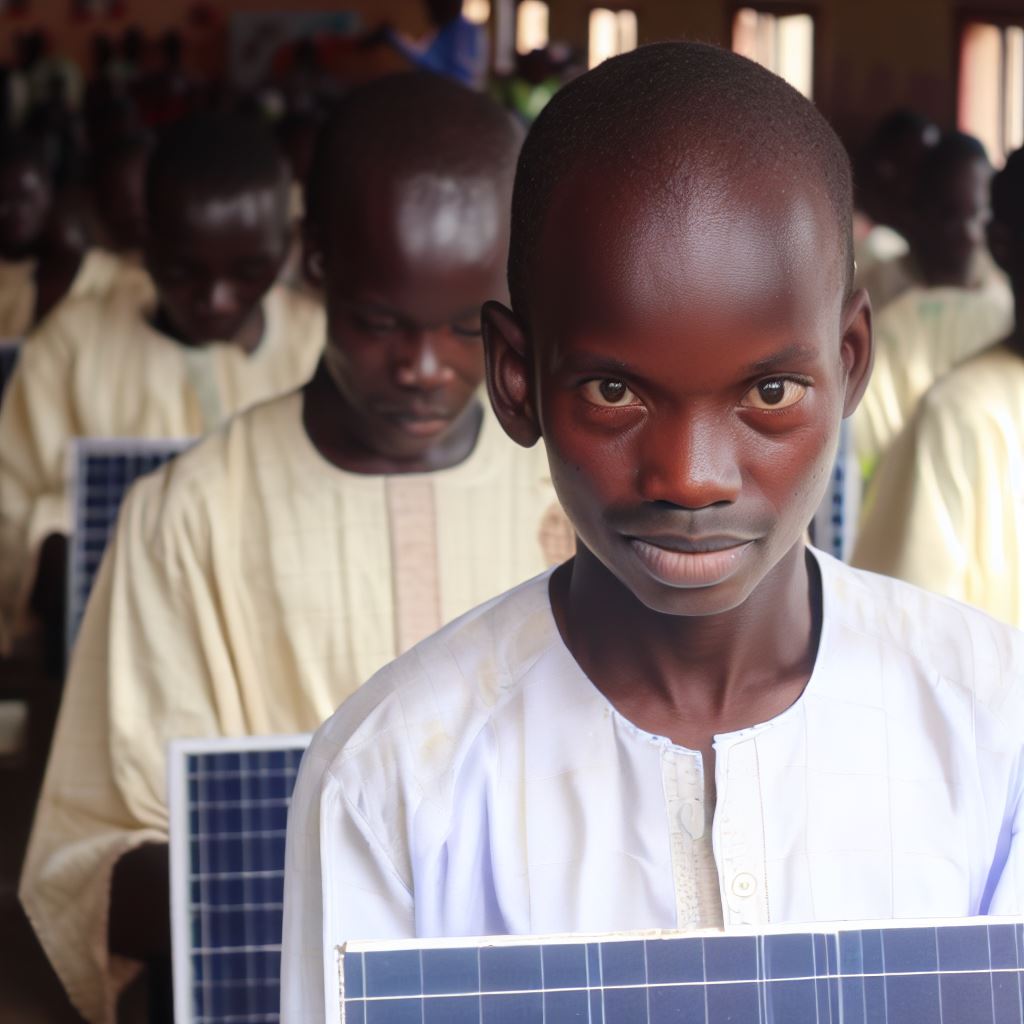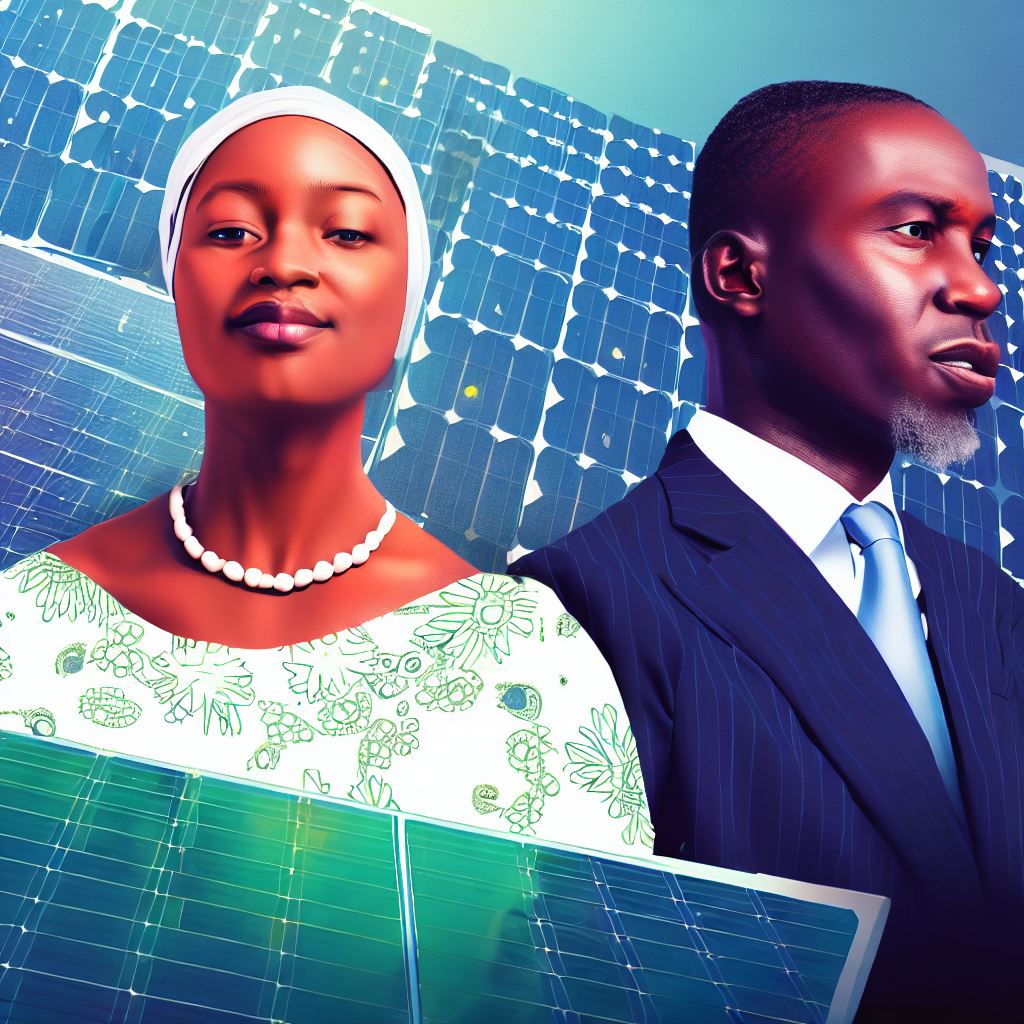Introduction
Let’s talk about solar PV installation projects in Nigeria.
Solar PV installation projects are a crucial aspect of Nigeria’s energy sector, contributing to sustainable development.
Brief explanation of the importance of solar PV installation projects
Solar PV installations provide clean and renewable energy, reducing dependence on fossil fuels and mitigating environmental impacts.
Overview of the increasing popularity and demand for solar energy in Nigeria
Nigeria, with abundant sunlight and electricity challenges, has witnessed a surge in the popularity of solar energy.
Project 1: Solar Power Naija Program
The Solar Power Naija Program, a government-backed initiative, aims to increase solar PV installations in Nigeria. Its goals include:
- Providing reliable electricity to rural and underserved communities, alleviating energy poverty.
- Achieving at least 30% solar energy penetration by 2030 to transform the energy sector.
Successful installations have brought electricity to areas like Offa, benefiting:
- Over 1,000 households and businesses.
- Small-scale businesses, increasing income and job opportunities.
- Reducing reliance on kerosene and diesel generators, improving air quality and reducing carbon emissions.
- Capacity building for local technicians and entrepreneurs, stimulating economic growth and program sustainability.
The Solar Power Naija Program’s success has attracted:
- Domestic and international investment.
- Interest from renewable energy companies, financiers, and development partners.
This initiative revolutionizes Nigeria’s energy landscape, promoting reliable electricity access, economic development, and a greener, sustainable future.
Read: Nigeria’s Growth: Role of Industrial Psychologists
Project 2: Solar Energy Support Scheme
The Solar Energy Support Scheme introduced by the Federal Government of Nigeria has played a significant role in promoting the adoption of solar PV installations around the country.
This program has not only increased access to clean and sustainable energy but also encouraged job creation and economic growth.
Overview of the Solar Energy Support Scheme
- The program was initiated by the Federal Government to accelerate the deployment of solar PV systems.
- It aims to address the limited access to electricity in rural areas and reduce dependence on fossil fuels.
- The scheme provides subsidies and incentives to individuals, households, and businesses interested in installing solar PV systems.
Contribution to the Solar PV Installation Sector
The Solar Energy Support Scheme has had a tremendous impact on the solar PV installation sector in Nigeria. It has:
- Promoted the use of clean energy sources, decreasing the nation’s carbon footprint.
- Stimulated economic growth by creating jobs in the renewable energy industry.
- Reduced the reliance on fossil fuels, leading to a more sustainable energy mix.
- Enhanced energy security, particularly in rural and underserved areas.
Notable Solar PV Projects under the Scheme
The Solar Energy Support Scheme has supported numerous noteworthy projects, impacting various sectors:
- Installation of solar-powered streetlights across major cities, improving safety and reducing energy costs.
- Solar electrification of schools and healthcare facilities in rural areas, enhancing the quality of education and healthcare services.
- Implementation of solar mini-grids in off-grid communities, providing reliable electricity for households and businesses.
- Integration of solar PV systems in government buildings, reducing operational costs and promoting sustainability.
Short-term and Long-term Benefits of the Program
The Solar Energy Support Scheme offers both immediate advantages and long-term benefits:
- Short-term benefits include improved access to electricity, reduced energy costs, and job creation.
- Long-term benefits involve environmental protection, sustainable development, and energy independence.
- This scheme ensures a transition towards a greener and cleaner energy future for Nigeria.
The Solar Energy Support Scheme has revolutionized the solar PV installation sector in Nigeria.
By providing subsidies, incentives, and support, the program has boosted the adoption of solar energy systems.
Notable projects carried out under this scheme have significantly improved access to electricity, promoted sustainable development, and created employment opportunities.
The short-term and long-term benefits of this program are crucial for Nigeria’s energy security and environmental preservation.
Read: Latest Trends in Industrial Psychology within Nigeria

Project 3: Obasanjo Solar Power Plant
The Obasanjo Solar Power Plant in Nigeria:
- Addresses energy needs with a capacity of X megawatts.
- Named after the former President, it strategically maximizes solar radiation for optimal energy generation.
- Contributes to Nigeria’s renewable energy growth, reducing fossil fuel reliance.
- Creates local job opportunities during construction and ongoing maintenance.
- Helps Nigeria achieve renewable energy targets amid rising electricity demand.
- Significantly reduces greenhouse gas emissions, combating climate change.
- Boosts the local economy by attracting investments and stimulating growth.
- Improves overall quality of life by providing reliable electricity for education, healthcare, and communication.
Generally, the Obasanjo Solar Power Plant is a vital component of Nigeria’s energy landscape, providing clean energy, employment, emissions reduction, and economic growth.
Read: How Industrial Psychologists Shape Nigeria’s Workplaces
Project 4: Solar Hybrid Mini
Nigeria faces a critical challenge with rural electricity access, affecting over half its population.
Solar hybrid mini-grids combine solar PV systems with other sources for stable rural electrification.
Successful projects in Jigawa and Enugu states demonstrate their potential:
- In Jigawa State, remote communities gained electricity, benefitting households, healthcare, schools, and businesses.
- Improved healthcare delivery with refrigerated vaccines and medicines.
- Enhanced learning environments in schools with reliable power for educational tools.
- Economic growth and job creation as local businesses thrive with electricity access.
- Reduced reliance on fossil fuels lowers carbon emissions and supports environmental sustainability.
- In Enugu State, solar hybrid mini-grids brought reliable, sustainable electricity to once-dark communities.
- Improved agricultural productivity through electric irrigation systems and machinery.
- Enhanced overall quality of life, enabling various activities like television, phone charging, and appliance use.
In review, solar hybrid mini-grids provide a reliable, sustainable solution for rural electrification in Nigeria, delivering social, economic, and environmental benefits and contributing to the nation’s development.
Read: Networking in Nigeria: Industrial Psychologists’ Community
Conclusion
In essence, this blog section has discussed some of the top solar PV installation projects in Nigeria.
These projects include the Solar Nigeria Programme, Lagos Solar Project, and the Gombe State Green Economy Initiative.
These projects have made significant contributions to sustainable development and energy access in Nigeria.
By harnessing the power of the sun, they have provided clean and renewable energy to homes, businesses, and communities, reducing reliance on fossil fuels and reducing carbon emissions.
Furthermore, these solar PV installation projects have created job opportunities and stimulated local economic growth.
They have also improved the quality of life for the Nigerian people, particularly those in rural and underserved areas, by providing reliable electricity to power essential services such as healthcare facilities, schools, and water pumps.
It is crucial to continue investing in and expanding solar PV projects in Nigeria.
With its abundant sunlight resources, Nigeria has the potential to become a leader in solar energy production.
Increased investment in solar PV installations will not only drive economic growth but also support the country’s efforts to achieve its sustainable development goals.
Ultimately, the discussed solar PV installation projects in Nigeria have demonstrated the immense benefits of solar power in achieving sustainable development and energy access.
It is essential for both the government and private sector to prioritize and encourage further investment and expansion in solar PV projects to ensure a sustainable and renewable future for Nigeria.




